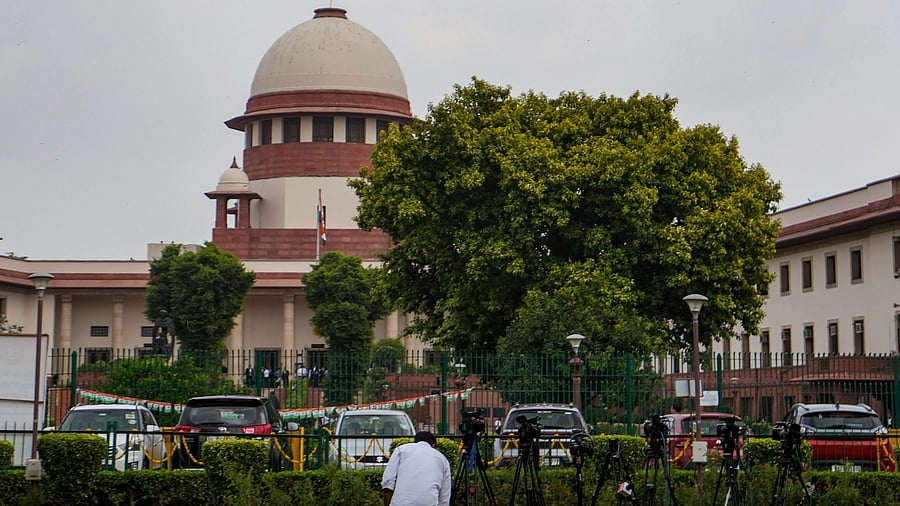
The Supreme Court of India
Credit: PTI File Photo
New Delhi: The Supreme Court on Friday held that no summons can be issued against an advocate over a legal advice rendered in a criminal case, unless the matter was covered under exception under Section 132 of the Bhartiya Sakshya Adhiniyam.
A bench of Chief Justice of India B R Gavai and Justices K Vinod Chandran and N V Anjaria pronounced the judgment in a suo motu case registered after issuance of summons to two senior advocates by the Enforcement Directorate.
The court declared that the investigating officers would not issue a summons to an advocate who represented the accused to know the details of the case, unless the matter was covered under any of the exceptions under Section 132.
The bench pointed out Section 132 of the BSA was a privilege conferred on the advocate.
The summons to the lawyers would not be issued without the consent of a superior officer not below the rank of Superintendent of Police, who would record satisfaction as to the exception in the provision, the bench said.
The court also said such summons would be subject to the judicial review.
The bench also declared no summons can be issued to the advocate for production of documents in civil and criminal cases.
The Enforcement Directorate has in June, 2025 issued summons against senior advocates Arvind Datar and Pratap Venugopal under Section 50 of the Prevention of Money Laundering Act, 2002 in its investigation into the Employee Stock Option Plan (ESOP) granted by M/s Care Health Insurance Ltd for a purported legal opinion rendered by them supporting the grant of Stock Options to former Religare Enterprises Chairperson, Rashmi Saluja.
The summons were subsequently withdrawn after the Bar bodies criticised the decision, by terming it a move fraught with serious ramifications for the independence of the legal profession and the foundational principle of lawyer-client confidentiality.
SC Advocate on Record Association president Vipin Nair on June 20 urged Chief Justice of India B R Gavai to take a suo motu cognisance of those summons, by terming it as a deeply disquieting development.
Acting on a separate plea by Gujarat-based lawyer on June 25, the Supreme Court's bench of Justices K V Viswanathan and N Kotiswar Singh had said permitting either the police or probe agencies to directly summon lawyers for advising clients would undermine the autonomy of the legal profession.
The court emphasised that the legal profession was an integral component of the process of administration of justice.
"Permitting the investigating agencies/police to directly summon defence counsel or advocates who advise parties in a given case would seriously undermine the autonomy of the legal profession and would even constitute a direct threat to the independence of the administration of justice," the court had then said.
